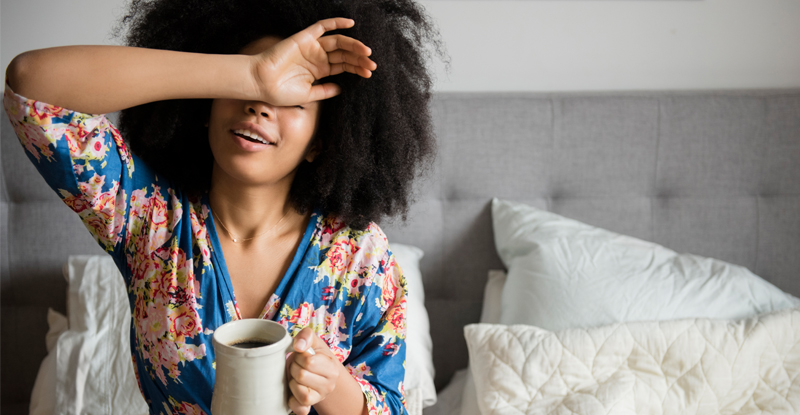So, you say you’re not a morning person?

If you are like most people that have difficulty rising early in the morning, your snooze button has become your best friend. How many times have you done this, “I know that I have to get up at 6:30am, so if I set my alarm for 6:00 or 6:15, I can hit my snooze button, at least 2 time’s!” It feels so good to hit that button and have that 10 more minutes. Well, if that’s working for you, then problem solved, however, it’s not always that simple.
Other than suffering a sleep disorder, the most common reason that we have difficulty getting up in the morning is poor sleep habits. We are just not getting enough sleep. Depending on age, we are all different. Just how much sleep should we really be getting? At the National Sleep Foundation, Max Hirshkowitz, Chair of the Scientific Advisory Council reports,” They are committed to regularly reviewing and providing scientifically rigorous recommendations”, therefore, “The public can be confident that these recommendations represent the best guidance for sleep duration and health.” Basically, 7-9 hours.
- Younger adults (18-25): Sleep range is 7-9 hours (new age category)
- Adults (26-64): Sleep range did not change and remains 7-9 hours
- Older adults (65+): Sleep range is 7-8 hours (new age category)
We all have a biological clock that controls our circadian rhythm. This is located in the brain and it determines our sleep pattern. When we mess with our bodies natural sleep-wake patterns, it affects our body temperature, metabolism, hormones and our quality of life. Like anything that is bad for us (i.e. over-eating), we need to adopt better habits and, in this case, make sleep a priority. We actually need to recalibrate or reset our sleep cycle.
Need help? Try these simple changes to improve your sleep:
- Before you go to sleep avoid, caffeine, alcohol, cigarettes and snacking at least 3 hours before bed. Stimulants and a full stomach hinder you getting to sleep.
- Go to bed the same time every night and plan it so you have 8 hours to sleep. Once you have a consistent sleep cycle, you can adjust here or there.
- Close the drapes and turn off the electronic devices – TV, cellphone, i-pad, computer. The blue light they emit decreases our serotonin and keeps us awake.
- Keep cool. You sleep better in a room that is between 65 to 75 Fahrenheit.
- If you have another person in your room, this may be tough, but you need to embrace the idea that your bedroom is for sleeping and not watching TV, reading or doing work.
- Get up as soon as your alarm goes off. Buy a clock without a snooze button.
- Open the drapes and let the sunshine in. It causes the serotonin in your brain to release and tells your body that it is time to wake-up.
For more information, both The American Alliance for Healthy Sleep and the Sleep Foundation, provide educational sections with information to help you get a healthy sleep or learn more about sleep disorders.
American Alliance for healthy Sleep https://www.sleepallies.org/education.php
Sleep Foundation https://www.sleepfoundation.org/
Citation
The National Sleep Foundation, 2019.
Healthy Sleep Habits and Good Sleep Hygiene.
WebMD 10 ways to reset your sleep cycle. Rachel Reiff Ellis, Nov 19, 2015.



